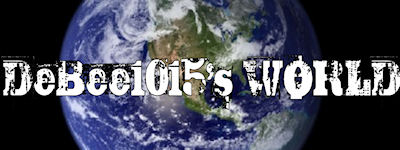 Image via Wikipedia
Image via WikipediaBy Jim Sullivan | Friday, July 23, 2010 |
There’s arena rock and then there’s Bon Jovi.
Bon Jovi doesn’t play arenas anymore. It plays football stadiums - including Gillette Stadium Saturday night.
Which, when things go well, is where you end up after 28 years and 3,500 shows..
“Or some crazy amount like that,” guitarist Richie Sambora, 51, said before Bon Jovi’s show at Toronto’s 55,000-capacity Rogers Centre earlier this week. “I don’t know if anybody has comprehensively toured as much as we have.”
But the band, led by singer Jon Bon Jovi, hasn’t forgotten its New Jersey club roots. “After all these years, we know how to make a stadium an intimate place,” Sambora said. “I don’t think we’ve ever had a bad show.
Bon Jovi - which also includes keyboardist David Bryan, drummer Tico Torres and, since 1994, bassist Hugh McDonald - has sold 120 million albums. The band had a No. 1 country hit in 2006 with “Who Says You Can’t Go Home,” a duet with Sugarland’s Jennifer Nettles. Their 11th studio album, “The Circle,” debuted at No. 1 last year. And they’re now deep into a 150-show tour.
“When I walk onstage and I look down and see my shadow,” Sambora said, “I say to myself, ‘Well, it’s pretty good to be me.’ I look up and there’s 55,000 people staring at me enjoying my songs. I do this all over the whole world. I’ve got the best partner and frontman in the business.
“Besides having one of the biggest bands on the planet, Jon and I were just in the gym and we’re looking at each other going, ‘Man, we’re still having fun. Everything’s really cool.’ ”
Herald: The concert business is in dire straits and big acts are scrapping tours, canceling arena gigs, but not you.
Sambora: We’re adding shows all over the world. We’re on cloud nine, man. The way the climate is in the touring business now, it’s amazing. We work as hard as we can every day, all the time. We still don’t take a bit of this for granted.
What’s your take on the continued success?
It’s the people. Not only that, it’s our own challenge to ourselves. Honestly when you get to do what we do at this level - to do what you love to do and make money - it’s extraordinary. There’s an internal challenge that we all bring to the party. It’s about bringing your heart and soul and leaving everything up there on the stage every night. You’re here. Let’s bring it. That’s been our attitude.
Did you have arena-sized ambitions from the get-go?
When we were young, we had a plan that we were going to be able to play everywhere. Of course you have the big ambitions, but nobody could have dreamed this big, or for this long. Frankly though, when we were making “Slippery When Wet,” we knew we had a couple of hits. When Jon and I wrote “Wanted Dead or Alive,” “Livin’ on a Prayer” and “You Give Love a Bad Name,” we looked at each other and said, “Yeah, we can work this.”
You’ve sold millions of records, but have never been a critic’s darling.
Ah, we’re an American rock ’n’ roll band. We just are who we are. We’ve never been a critic’s band, but “The Circle” got amazing reviews and the live shows are getting amazing reviews. So everything comes around.
It seems with “The Circle” there’s a bit more grit and reflection. Any thoughts?
It really constitutes a lot of different things. It constitutes growing up. It’s always relying on your influences and rediscovering what your roots are. We’re on a constant quest for evolution. There’s a populist, working-class ethic to it. Jon and I have probably written close to 500 songs, and you draw a lot from what’s happening in the culture and what’s happening in the world. “The Circle” couldn’t have been written at a different time. Those songs were written about how people were feeling about the economic crunch. It’s not a political album per se, but it’s an album about how people were reacting to what was happening in the world. It was right at the time of the election and a lot of people had a lot of hope that Obama was gonna get elected. There’s a string of hope that goes through those songs and there was a string of doubt, a lot of different emotions.
What’s your writing process?
Jon and I write very simply. We start out with a conversation about what we’re feeling. It’s spontaneous combustion. It’s always in the moment and we’re always in the same room with a couple of guitars or a piano. If you can sell it with a guitar and voice, that’s the way we base it.


No comments:
Post a Comment